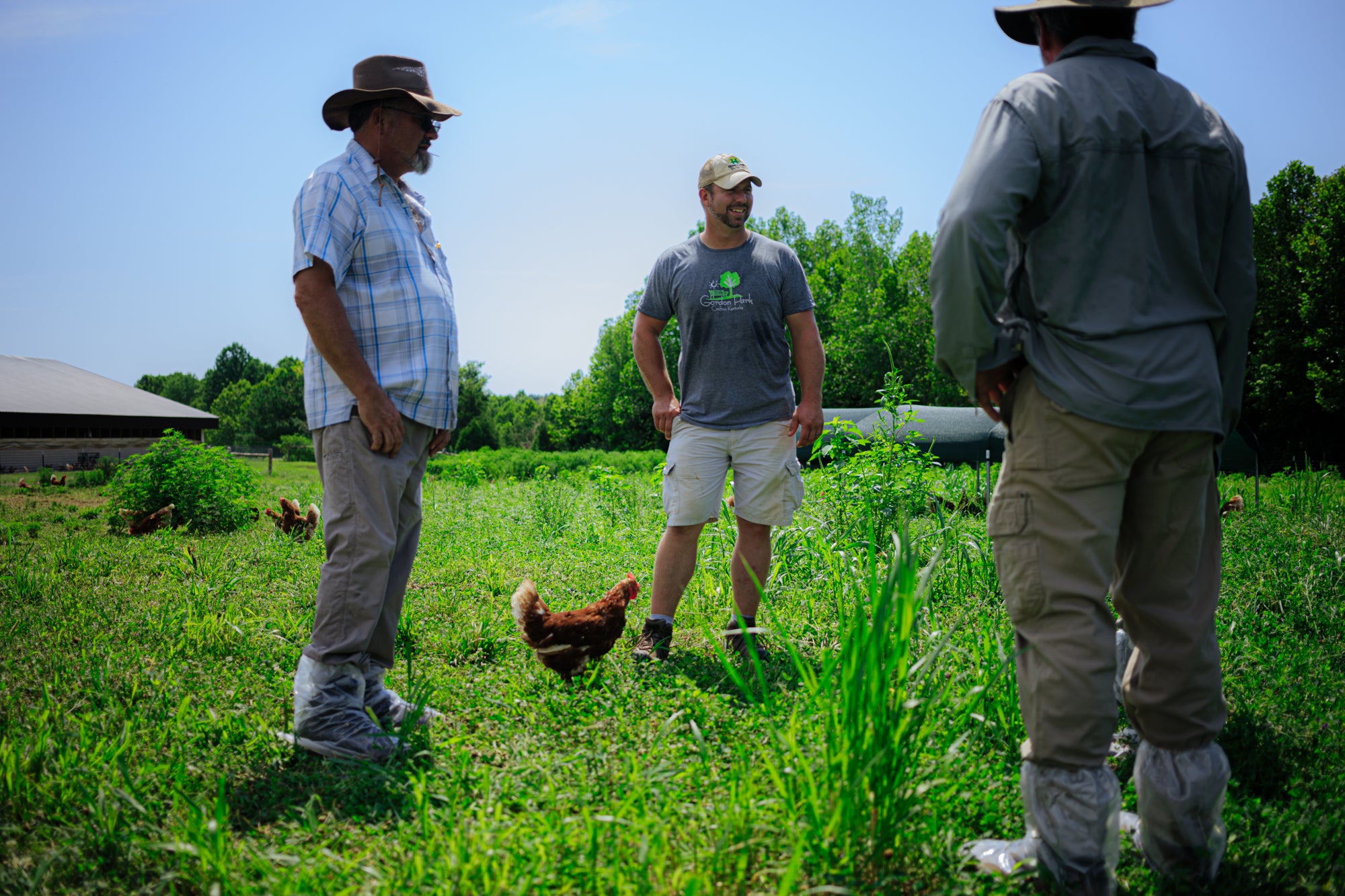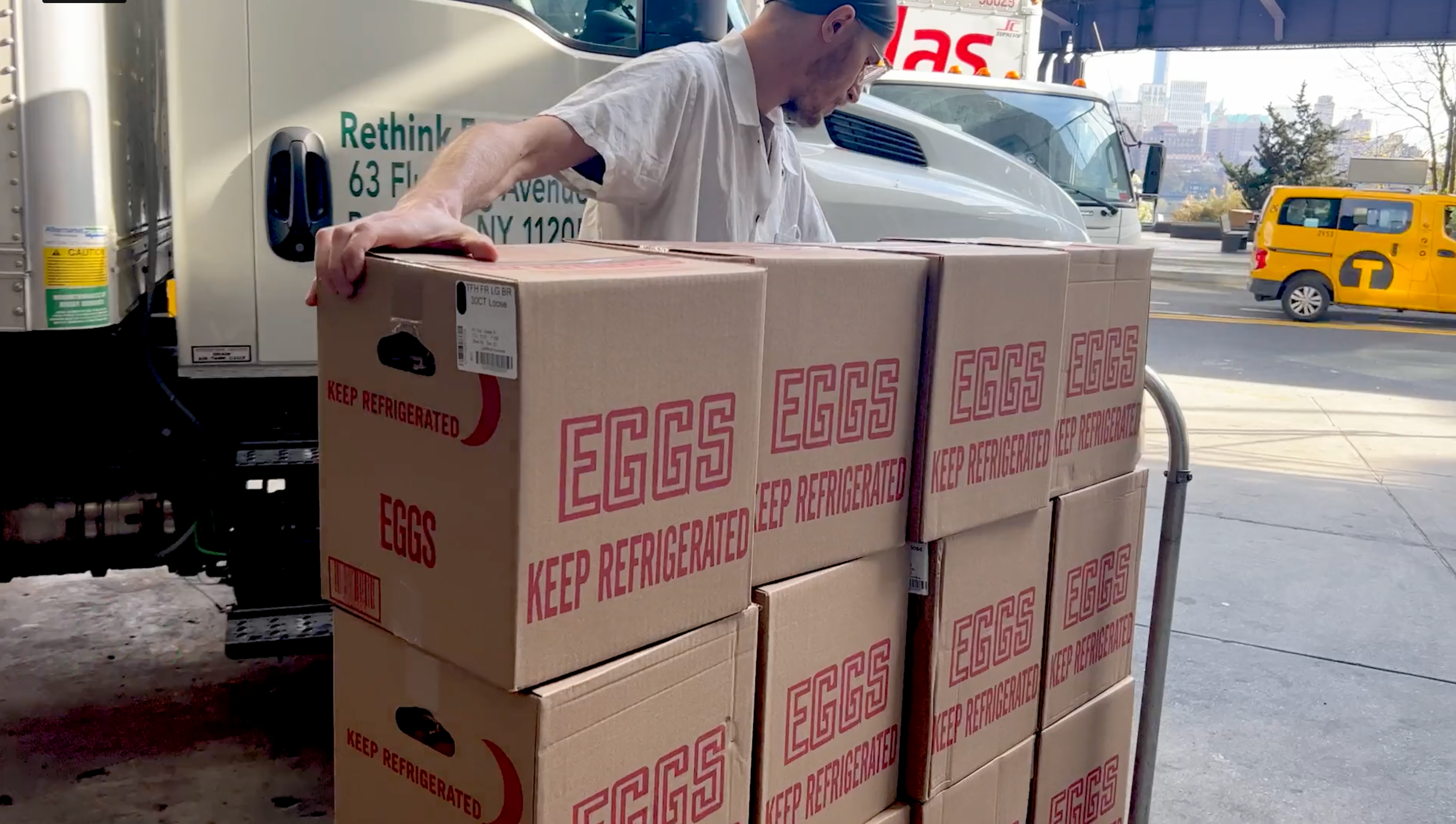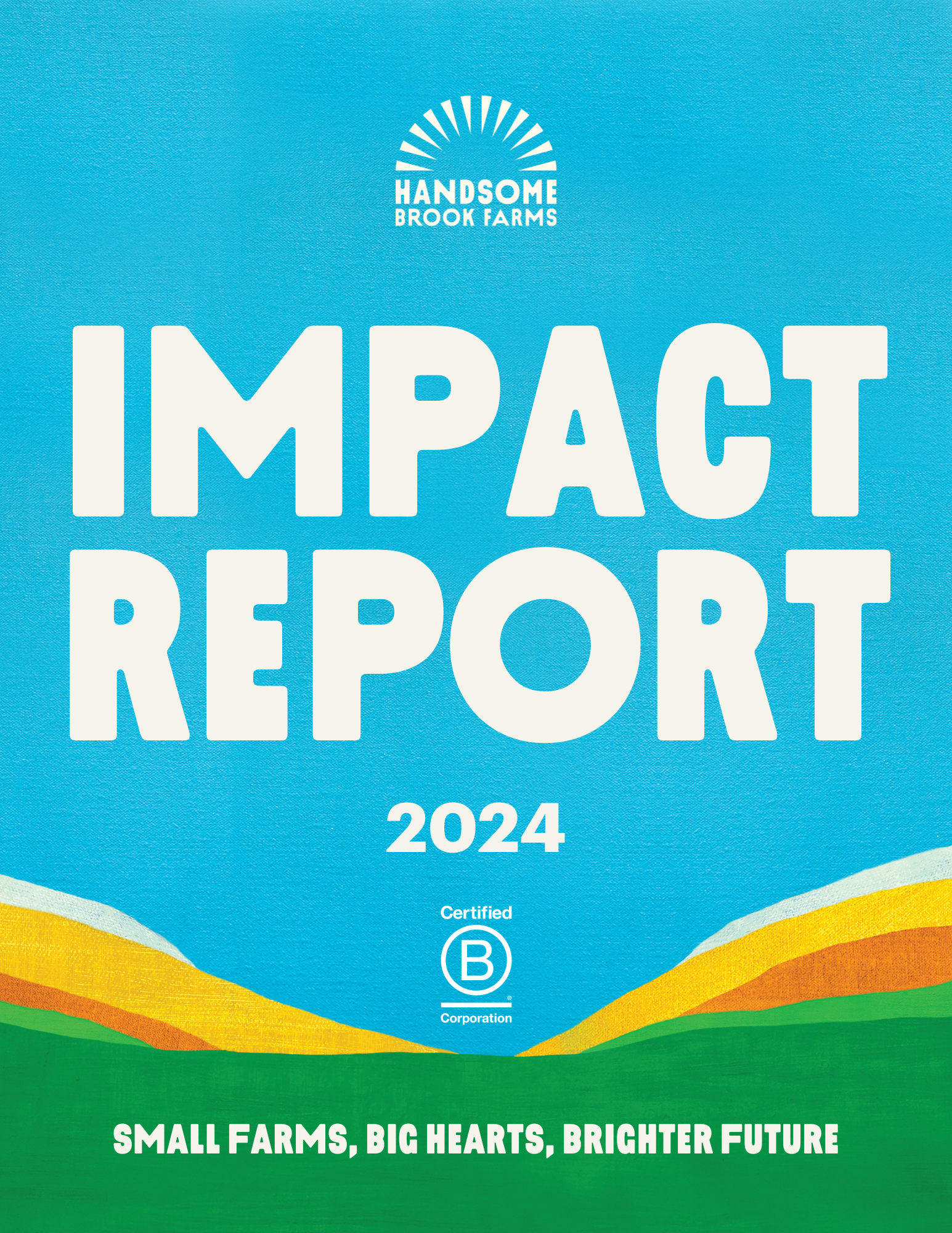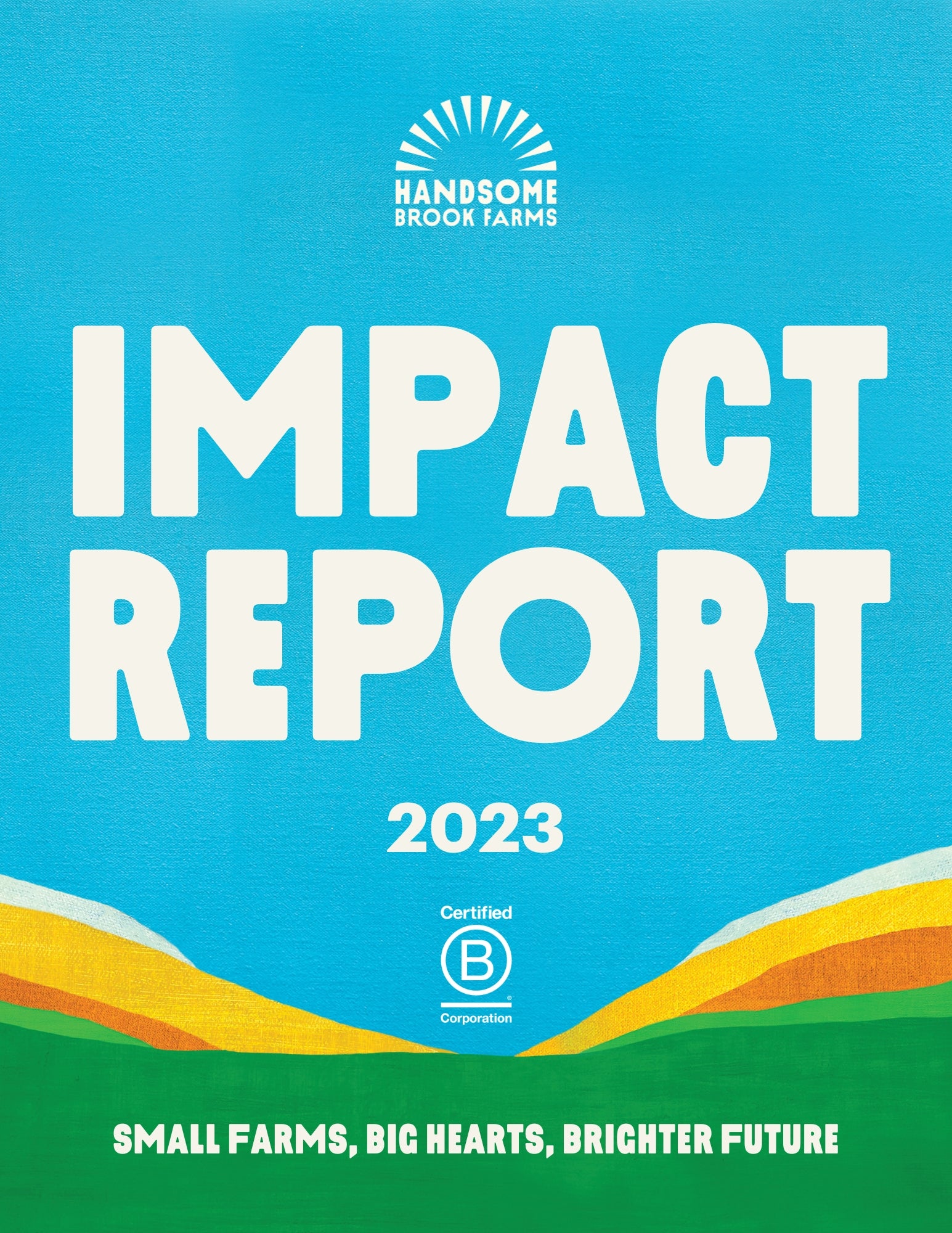Transforming Landscapes Through Regenerative Agriculture

There’s a long history in Kentucky of corporations extracting natural resources from the countryside. One generation ago, coal mines brought jobs and left behind slag and the scars of tailings across the face of the landscape.
The late John Prine remembers in his song ‘Paradise’, Muhlenberg County, Kentucky as his once tranquil home before a coal mining company hauled it off to the highest bidder. Today, Nathan Schlabach is writing a new chapter in the region's agricultural history. Through his participation in Handsome Brook Farms’ Regenerative Egg Farming Project Grant, Nathan is transforming his farm with regenerative practices, breathing life into a landscape once deemed barren.
“I had people tell me when we bought the place and moved out here, ‘You know you’re not going to be able to grow anything out there.’ I thought, just give me a few years, and some chicken litter and we’ll see what I can do.”

Before building his barn in 2018, Nathan was working in construction and exploring different egg companies to work with. “After talking to different people, I ultimately decided to go with Handsome Brook,” Nathan says, “I’m still glad I did.”
Growing up on a broiler farm (chickens raised for their meat), Nathan already knew a thing or two about chickens. “I was 11 years old when dad built his barns. Dad worked a daytime job and so part of my daily routine was taking care of chickens. I enjoy the farm lifestyle. I enjoy working with the chickens every day.”
Nathan's journey for his own farm began with a vision to restore a 400-acre plot of land that had endured the impacts of coal mining not once, but twice in its history. Despite the skepticism of others, who doubted the land's viability, Nathan saw potential. He embarked on a mission to accelerate the process of ecological recovery through regenerative agricultural practices.
"The big thing we’re trying to do is rebuild the soil. When we bought the place, there was hardly any topsoil, but now it’s all starting to come back," Nathan explains.


As one of five Handsome Brook growers participating in the Regenerative Egg Farming Project, Nathan's farm has become a beacon of hope for land restoration. Through thoughtful cover cropping rotations, planting trees, and the application of composted chicken litter, Nathan is rejuvenating his pastures. Guided by soil sample analyses and a Natural Resources Conservation Service (NRCS) approved Nutrient Management Plan, he carefully manages the application of chicken litter to optimize soil health.
"The land sat vacant for over 20 years,” Nathan reflects. After implementing regenerative agriculture practices, “everything [grew] up to the point where there was probably less than an acre of the almost 400 that were clear when we bought it." Nathan's dedication to regenerative practices goes hand in hand with his commitment to organic farming. He seized the opportunity to certify his land as organic from the outset. “It was a piece of property that didn’t have any chemicals or nothing put on it in a long time. This [was] good for us because that way we could get it certified organic right away without having to wait three years.”
For Nathan, the decision to transition to organic egg production was not just a business choice but a lifestyle. He sought to create a sustainable livelihood that would allow him to be hands-on with his work and free from the complexities of a 9 to 5 job. Five years into his organic egg venture, Nathan's aspirations for his farm continue to evolve. His plans to incorporate permanent organic pasture grasses and implement rotational cattle grazing exemplify his long-term commitment to improving soil health and biodiversity.

With each passing season, and with support from Handsome Brook Farms, Nathan's farm is undergoing a remarkable transformation, evolving from a desolate landscape to a thriving agricultural haven. Despite the challenges and demanding nature of farming, Nathan remains steadfast in his dedication, finding fulfillment in the tangible impact of his work.

"It’s hard work... But it’s still way better than working a day job," says Nathan.
Through his unwavering commitment to regenerative practices, Nathan Schlabach stands as a testament to the power of stewardship and the potential for land regeneration even in the face of his farm’s environmental legacy. His story serves as inspiration for farmers and agronomists alike, highlighting the transformative possibilities of regenerative agriculture in revitalizing landscapes and communities.





